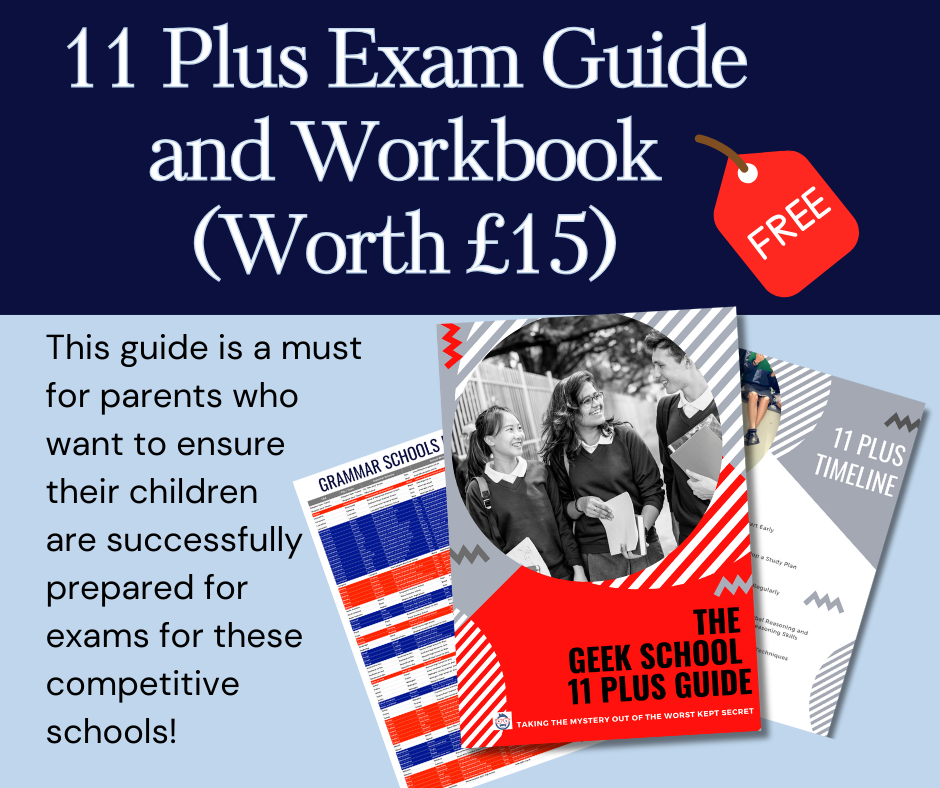The Urgent Need for Fast 11+ Creative Writing Improvement
It usually comes after a mock exam shows some worrying gaps, or a practice paper returns with a disappointing score. The 11+ exams are s fast approaching and suddenly it feels like there’s no time left. That realisation can bring on a lot of anxiety – I completely understand. But here’s the good news…
I’ve worked on 11 Plus creative writing with hundreds of students in house and more than 1000 on our Creative Writing Crash Course who’ve faced this exact situation. And with the right approach, we’ve seen real, lasting improvement in just a few weeks.
Mrs Patel from Bromley once told me, “I thought we’d left it far too late. But in just four weeks, the change in Priya’s writing was incredible. I honestly couldn’t believe what she was producing by the end.” That’s not an exception – it’s something I’ve seen time and again.
Just How Much Can Change in a Few Weeks?
Let me show you a real example from a student I worked with over four weeks:
Before (Week 1 – Initial Assessment)
“The old house was scary. It had broken windows and a creaky door. No one had lived there for years…”
A typical starting point. Short, basic sentences. Overused words like “scary” and “dark.” The story tells rather than shows. There’s little atmosphere or emotion.
After (Week 4 – Final Assessment)
“Thornfield Manor loomed against the twilight sky, its jagged silhouette a warning that strangers were unwelcome…”
By the final week, this student’s writing was unrecognisable – in the best way. They’d learned how to vary sentences, use figurative language, create suspense, and describe with real flair. The writing had depth and style. Most importantly, it felt like a story, not a list of events.

Why Weekly Lessons Often Aren’t Enough (When Time’s Running Out)
There’s nothing wrong with weekly tuition. But when the clock’s ticking, it’s not always the most effective route. Here’s why I see it fall short – and what’s needed instead.
1. The Practice Isn’t Targeted Enough
Writing endless full stories without a clear focus can lead to students repeating the same mistakes. We focus on specific skills instead – things like sentence starters, vocabulary choices or how to show, not tell.
2. Trying to Fix Everything at Once
If you’re working on vocabulary, grammar, structure and exam technique all at the same time, it’s hard to make real progress in any one area. That’s why we prioritise the most impactful areas first.
3. Vague Feedback Slows Everything Down
Comments like “try to be more creative” or “watch your punctuation” don’t help students know what to do differently. I use very specific feedback so they can apply it straight away.
4. Foundations Get Skipped
I’ve seen students learning similes before they’ve mastered punctuation. Without solid basics, the more advanced techniques won’t hold.
5. Exam Strategy Is Overlooked
Some students can write well – but they don’t know how to plan quickly or finish a piece under timed conditions. That can make all the difference on exam day.
What We Focus On Instead (The Approach That Works)
Over the years, I’ve developed a framework that delivers real results fast. It’s not about cramming or shortcuts. It’s about smart, structured work that helps students improve exactly where they need to. Here’s what we focus on:
1. Focus on What Matters Most
We start with a diagnostic. That helps identify the key areas to work on, so we’re not wasting time trying to fix everything. Often, we focus on 3 or 4 areas like sentence variety, vocabulary, or how to build atmosphere.
2. Break It Into Micro-Skills
Instead of writing full stories every session, we break it down. One day might be all about sentence openings. Another might focus on building emotion without saying “he was scared.” These are small pieces that lead to big changes.
3. Build Vocabulary That’s Useful
We don’t use word lists full of random “impressive” words. Instead, students build practical vocabulary banks they can actually use – grouped into themes like movement, fear, or weather.
4. Transform Basic Sentences
We work on taking flat, functional sentences and turning them into something vivid and engaging. It’s one of the quickest ways to upgrade a student’s writing.
5. Learn How to “Show, Don’t Tell”
This alone can take a student’s writing up a whole level. We teach them how to show emotion through body language, actions, or the environment – not just tell the reader what’s happening.
6. Use All Five Senses
We show students how to build atmosphere by engaging more than just the eyes. Smell, touch, sound – when used well – make writing much more immersive.
7. Plan Properly (and Quickly)
Students learn a 3-minute planning method they can use in any exam situation. That way, they never sit staring at a blank page.
8. Practise with Feedback That Actually Helps
The feedback loop is where the magic happens. We don’t just mark – we explain how to improve specific parts and make sure students apply the advice right away.

A Simple Four-Week Programme That Gets Results
Here’s how we typically structure our 4-week Rapid Improvement Plan:
Week 1 – Getting Started
- Writing assessment
- Diagnostic to identify key focus areas
- Sentence structure, variety and basic technique
- Build vocabulary that adds impact
Week 2 – Description and Emotion
- Multi-sensory description
- “Show, don’t tell” in practice
- Creating mood and atmosphere
- Stronger character description
Week 3 – Elevating the Writing
- Use of literary devices like metaphor and personification
- Openings and endings that grab attention
- Story flow and paragraphing
- Sentence control and tension-building
Week 4 – Exam Focus
- How to plan in 3 minutes
- Time management strategies
- Timed writing practice
- Feedback, editing and confidence-building
Real Stories from Families I’ve Worked With
Aisha – 10 Years Old, 4 Weeks to Go
Her creative writing was flat and rushed. We focused on sentence variety, showing emotion, and using the senses. She got into her top grammar school.
“She stopped fearing creative writing. That was the biggest change.”
Daniel – 11 Years Old, 6 Weeks to Go
He was technically accurate, but his writing felt dull. We focused on literary techniques and vocabulary. He secured a place at his first-choice independent school.
“His stories went from bland to brilliant. You could feel the difference.”
Maya – 10 Years Old, 4 Weeks to Go
Great ideas but poor structure. We drilled planning, pacing and strong endings. She got offers from two grammar schools.
“Once she had a plan, everything else came together.”
Want to Support Progress at Home Too?
If your child’s doing a Rapid Improvement programme or you just want to help from home, here are a few things you can try:
- Keep practice short and specific. Just 15 minutes a day is better than an hour once a week.
- Focus on one thing at a time. Whether it’s sentence starters or sensory description, keep it clear.
- Give specific feedback. Instead of “this is good,” say “this part really shows the character’s fear well.”
- Practise planning under time pressure. Set a timer and let them plan a story in three minutes.
- Celebrate progress. Even small wins deserve praise.
Next Steps
If exams are just around the corner, now really is the time to act. Each week matters. Our Rapid Improvement Programme includes:
- A full writing assessment
- A personalised plan
- Weekly coaching with expert feedback
- Support materials for daily practice
- Timed writing and mock assessments
- Real, visible progress
We keep numbers low for these sessions, especially during the final weeks before the 11+. If you’re interested, let’s have a quick chat about what’s possible.




Leave a Reply
You must be logged in to post a comment.